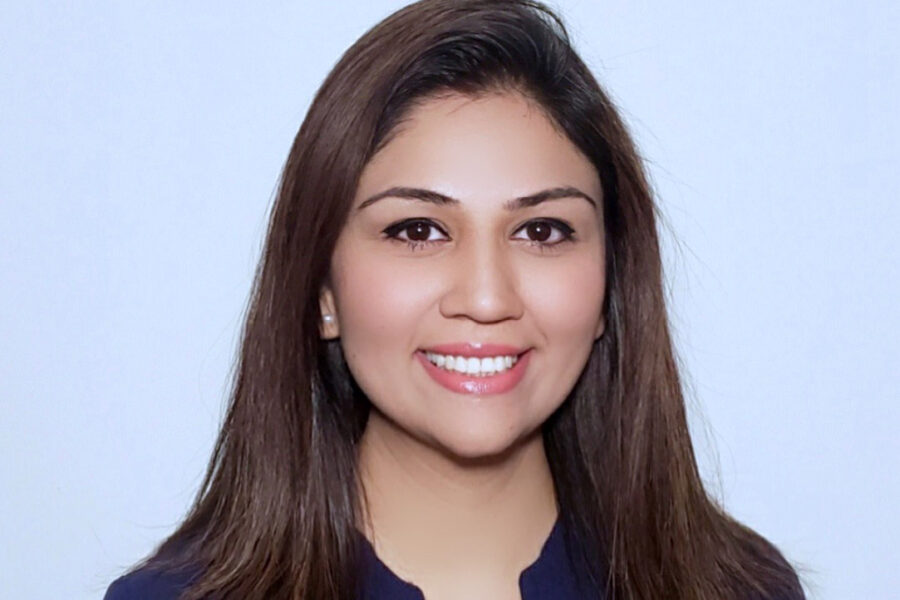Family medicine resident Rubab Ali, MD, is taking part in an ongoing major initiative to create a universal credentialing system for endoscopists at the national level.
This important initiative is being driven by 11 national medical and surgical societies in a collaborative attempt to define the current and future landscape of endoscopy in the United States.
Working with her mentor, Dale Agner, MD, Dr. Ali recently presented the results of three years of research on endoscopy guidelines and accreditation, aimed toward creating a universal accreditation protocol.
“Individually, all the different societies have their guidelines,” Dr. Ali said. “You can see the framework that they follow in terms of credentialing, and obviously the goal is to provide high quality patient care and safety. But all these societies have individual frameworks of how to credential the endoscopist.
“Our goal is to come up with universal guidelines for all the societies. We have a great team of experts working with us.”
Working with the McGoogan Health Sciences Library, Dr. Ali and the rest of Dr. Agnar’s team collected and reviewed more than 500 papers per team member, many in different languages, to explore four key questions:
- Should competency-based training programs, or procedural, volume-based requirements, or a combination be used for training the next generation of gastrointestinal endoscopists?
- Should credentialing in gastrointestinal endoscopy be based on completion of a competency-based training program and success in cognitive and skill-based examination, or in procedural, volume-based requirements, or in a combination of these principles?
- After initial credentialing, should the decision for recredentialing be based on procedural, volume-based requirements or procedure-related patient outcome data, or clinical performance assessment based on simulated exams?
- For recredentialing in GI endoscopy, should shorter or longer recredentialing cycle intervals be used to optimize endoscopist performance measures and patient outcomes?
“It is a long process,” Dr. Ali said. “It’s a difficult task to bring all the societies together and share research with experts from all these societies. Looking at all these papers, it’s not like we’re the first ones to do this.”
Dr. Ali presented the framework of her project at the ResQ Committee (Patient Safety, Quality Improvement and Disparities Research Collaborative) meeting on March 12.
Chandra Are, MBBS, associate dean for Graduate Medical Education in the UNMC College of Medicine, said the ResQ Committee was formed by the Graduate Medical Education Office in 2017 to promote scholarly activity by house officers in the avenues of patient safety, quality improvement and disparities.
The ResQ Committee consists of various people with expertise in research related to these areas, and feedback is provided to the house officers about their research projects.
“I was quite happy with their feedback,” she said. “Also, it was very enlightening to be able to see the presentations of other house officers and learn from them, in terms of all the things they have achieved in their projects.”
Next steps for Dr. Ali and her team, after extracting the data from the papers they’ve gathered, will include meta-analysis and systemic reviews.
“We have experts from this field who will be helping with this,” she said. “Then we’ll be discussing our next steps. Where do we go from here?
Dr. Ali will complete her residency in three months, though she hopes to continue working on the project.
“It’s a privilege to be a part of it,” she said. “I have learned so much just being part of this project. We have reviewed so much data and so many papers that I would otherwise not review. You know, I think it’s helped me grow professionally and really see what’s evidence-based care is all about. ”
